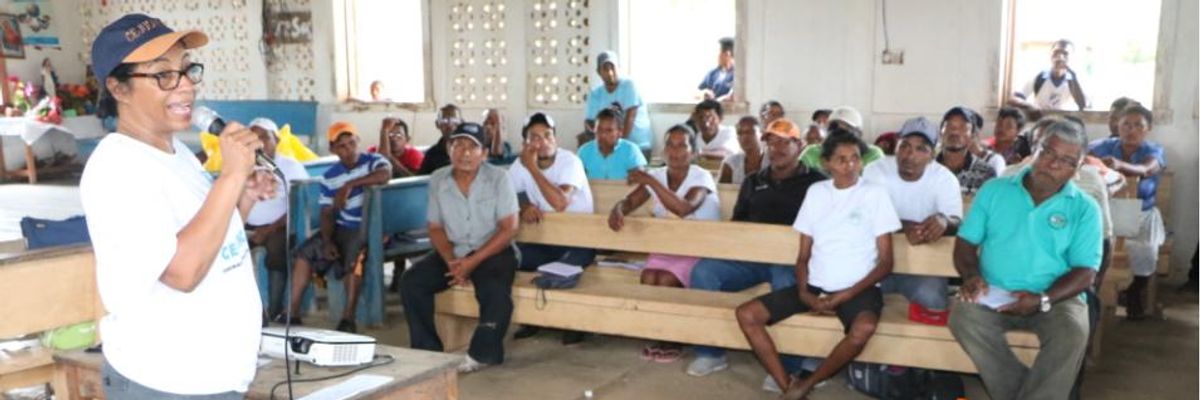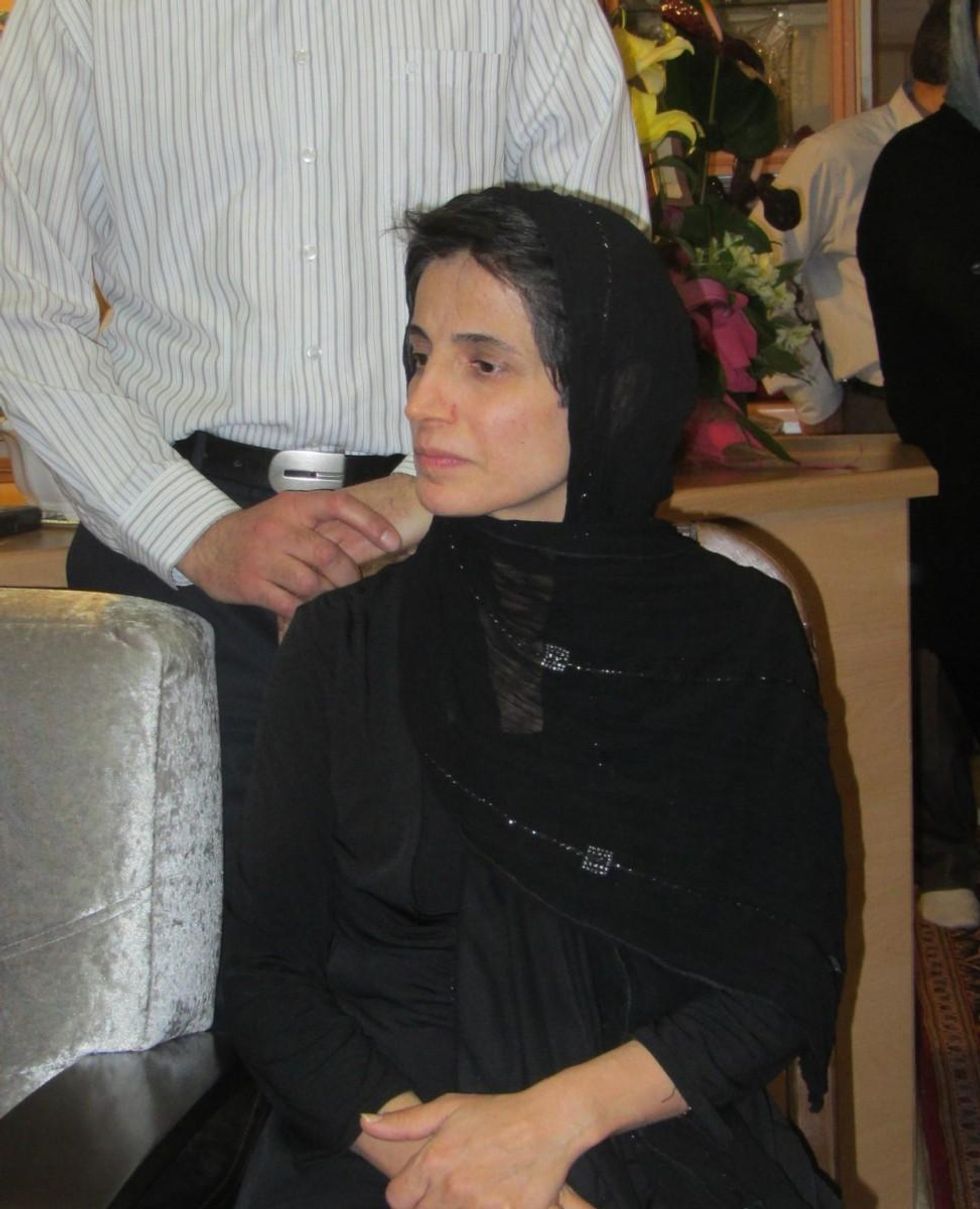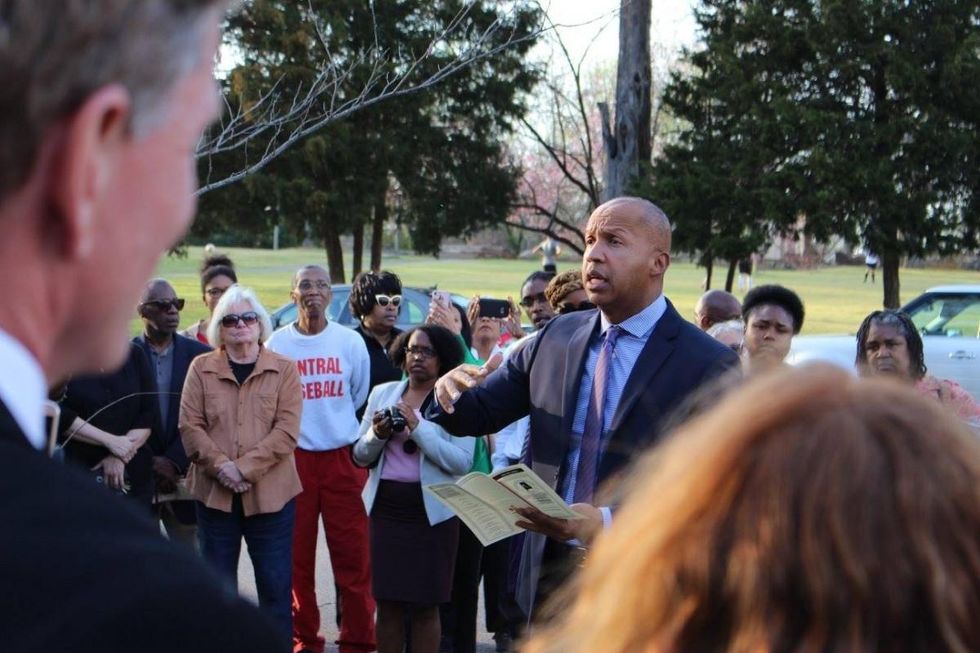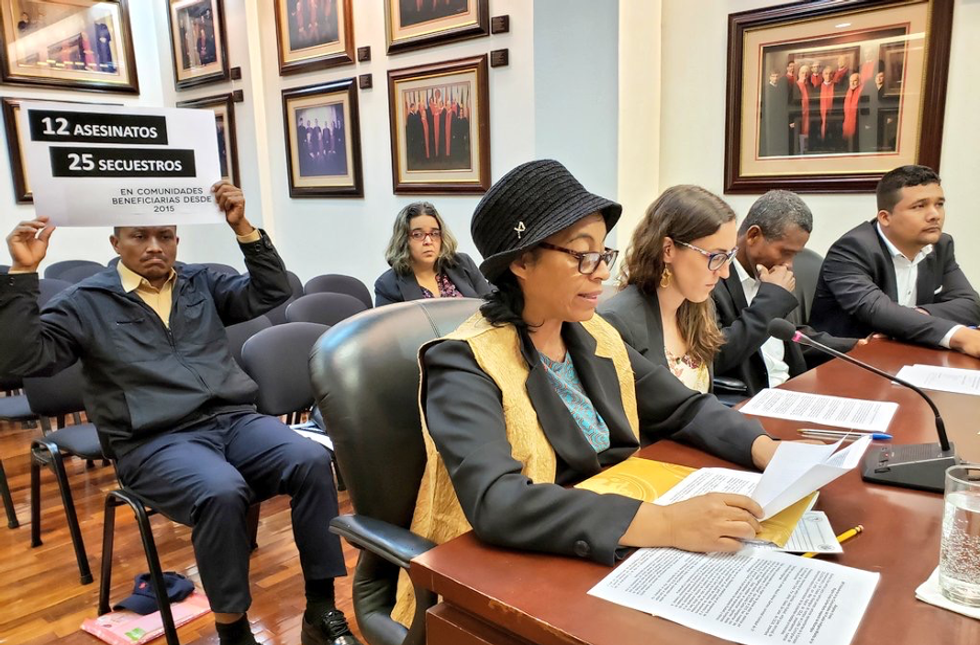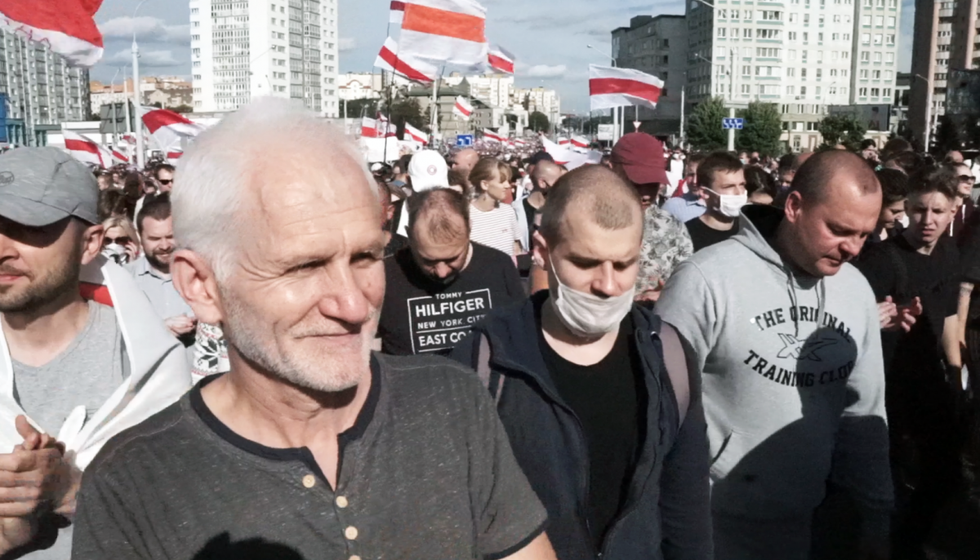The four individuals and non-governmental organization who were selected Thursday as the 2020 Right Livelihood Laureates are "united in their fight for equality, democracy, justice, and freedom," said the Swedish Right Livelihood Foundation in a statement.
As it has annually since 1980, the foundation selected the winners of the award that's often called the "Alternative Nobel Peace Prize" based on their dedication to defending the rights of vulnerable people against the abuses of powerful systems and regimes.
This year, the laureates are Nasrin Sotoudeh, an imprisoned Iranian human rights lawyer; Bryan Stevenson, an American civil rights lawyer; Lottie Cunningham Wren, an indigenous rights advocate and lawyer in Nicaragua; and Ales Bialiatski, a Belarusian pro-democracy activist as well as Viasna, the human rights center he established in 1996.
"Defying unjust legal systems and dictatorial political regimes, they successfully strengthen human rights, empower civil societies and denounce institutional abuses," said Ole von Uexkull, executive director of the Right Livelihood Foundation. "This year's selection of recipients highlights the increasing threats to democracy globally."
Each laureate will receive one million Swedish krona and will be presented with the award in a virtual ceremony on Dec. 3.
Nasrin Sotoudeh
Sotoudeh was honored for her "fearless activism, at great personal risk, to promote political freedoms and human rights in Iran," the foundation said.
She is currently serving a 38-year prison sentence which began in 2019 after being convicted of "made-up charges including stoking 'corruption and prostitution'," the foundation wrote.
Sotoudeh's sentence also included 148 lashes and came after she defended women who removed their hijabs in public. For more than a decade, Sotoudeh has defended activists arrested during the 2009 anti-government protests in Iran, high-profile human rights advocates, and has campaigned against the death penalty.
Sotoudeh's husband, Reza Khandan, thanked the foundation on her behalf Thursday.
"The Iranian government thinks they can ruin our family by imposing heavier attacks on us," Khandan said. "They have targeted the pressures towards our whole family in the hope that they can achieve their goals. I am so worried about Nasrin's condition that I am beginning to think of the worst-case scenario, which I never thought of before. It would be impossible to tolerate these pressures without local and international support. The speed and strength of this support seem to outweigh the government's pressures."
Bryan Stevenson
Stevenson was awarded the Right Livelihood Award amid a nationwide uprising in the U.S. against racial injustice, which he has fought against in the criminal justice system for decades. He founded the Equal Justice Initiative (EJI) in 1989; the group has since represented hundreds of people in the criminal justice system each year and has secured release or reversed sentences for 140 wrongfully convicted people on death row.
Stevenson opened the National Memorial for Peace and Justice in 2018 in Montgomery, Alabama--the nation's first museum and memorial dedicated to the legacy of enslaved Black people and victims of lynching, segregation, and Jim Crow laws.
"By advocating for a society-wide process to face the legacy of slavery and white supremacy in the US, Stevenson is paving the way for the structural changes needed for societal healing from the country's long and violent history of racial injustice," the foundation said.
Stevenson said in a statement that his selection for the Right Livelihood Award is "very affirming and very encouraging, and it comes at a moment when there's a lot of uncertainty, a lot of anxiety about our efforts to achieve justice in America."
"We are in the midst of pushing racial justice projects that cause our nation to deal more honestly with the history of racial injustice and racial inequality, so this support will help us advance that work," he said.
Lottie Cunningham Wren
Cunningham "has secured indigenous land rights in Nicaragua, pioneering legal strategies that have been successfully used by indigenous communities around the world to demarcate their lands."
As an advocate for her own Miskito Indigenous group, Cunningham has established programs to reduce domestic violence, pushing to create space for women in decision-making bodies, and educated young people about formally fighting for their human rights. Cunningham helped mobilize community members against a Chinese-financed canal project which would have cut through Indigenous lands, leading to forced displacement and the destruction of ecosystems.
"I am truly humbled to accept this award in the name of indigenous people on the Caribbean Coast of Nicaragua, especially those who have given their lives defending the territory and our Mother Earth," said Cunningham. "It will help make our struggles visible in a crucial time when people are facing a humanitarian emergency and Nicaragua is in one of the deepest human rights crises of its history."
Ales Bialiatski and Viasna
Bialiatski founded human rights center Viasna in 1996 to support political prisoners, as part of "an almost 30-year campaign for democracy and freedom," the foundation said. The group is now the leading NGO in Belarus that documents human rights abuses and monitors elections.
Bialiatski's selection as a Right Livelihood laureate comes weeks after President Alexander Lukashenko, who has ruled the country as an authoritarian since 1994, claimed victory in an election widely denounced as fraudulent. In the election's aftermath, Viasna and Bialiatski have played a leading role in defending the right to assembly and advocating for those arrested at protests, where hundreds of thousands have gathered.
Bialiatski has frequently been targeted by the government and has "spent several years in prison on trumped-up charges," the foundation wrote. He has also campaigned for the abolishment of the death penalty.
"I fully realize that it is a historical combination of circumstances, namely the tragic and wonderful struggle of my people for justice, their sacrifices and selflessness, that have led to the fact that human rights work in Belarus this year has become more necessary and relevant than ever," said Bialiatski. "This award is a sign of moral support for all Belarusians who are striving for democratic change. I hope that the international attention that the prize attracts will help make the work of the Human Rights Center 'Viasna' in Belarus more meaningful and less dangerous."
Von Uexkull expressed hope that "all of us in favor of democracy around the world stand up and support each other."

